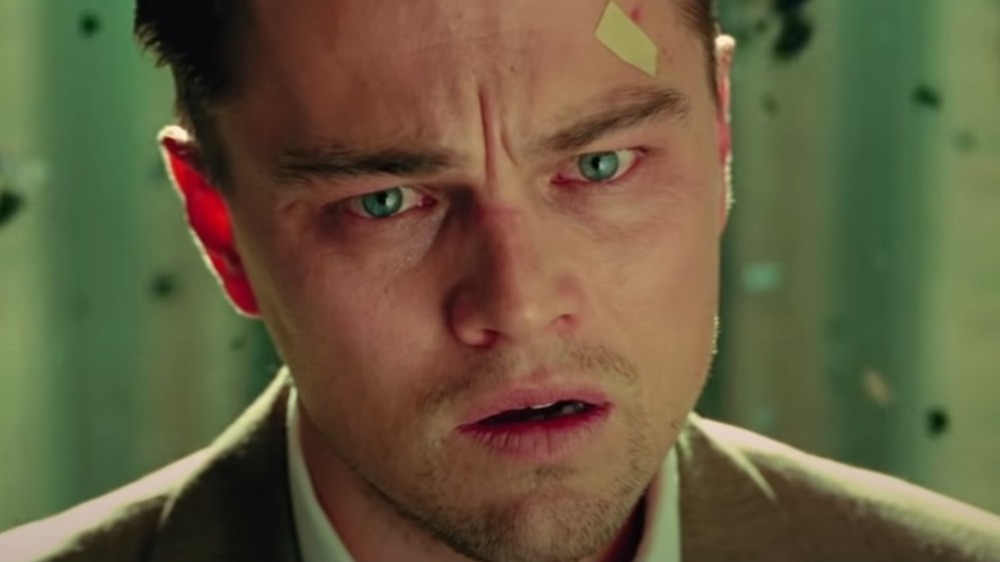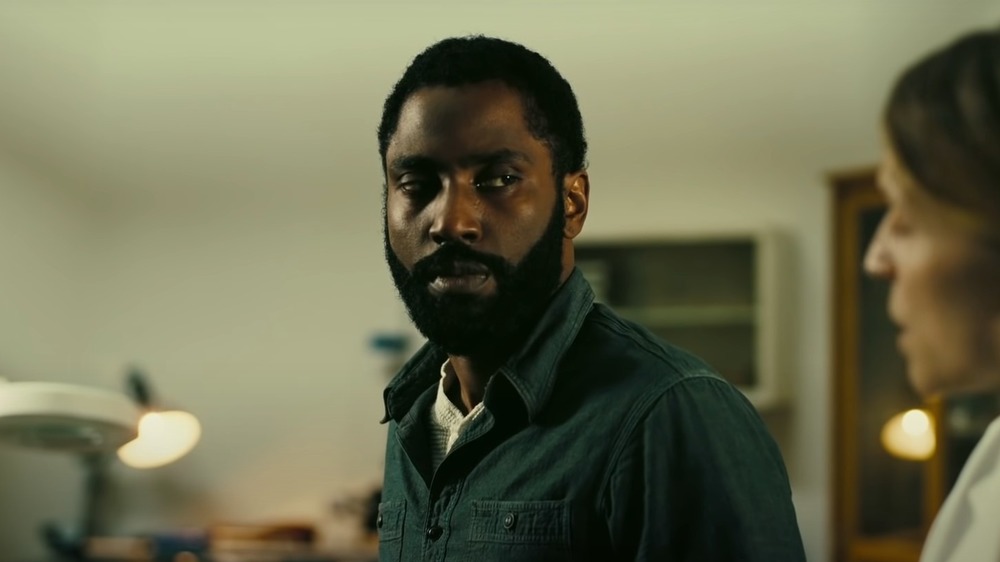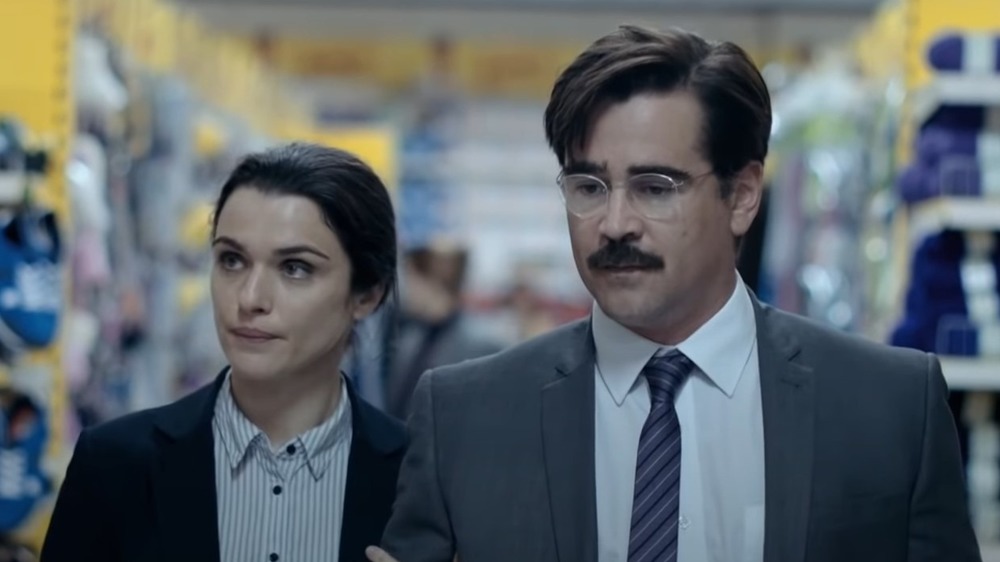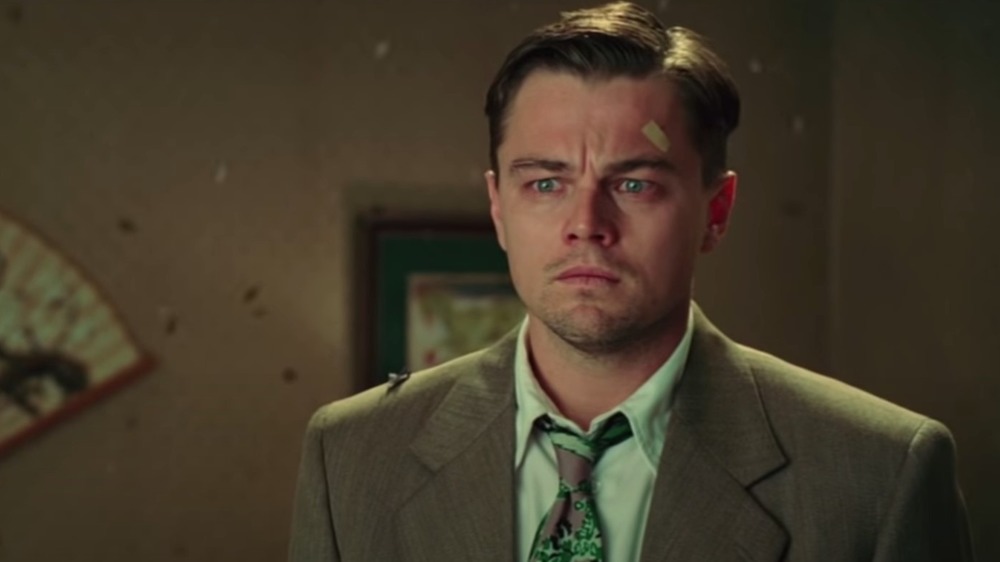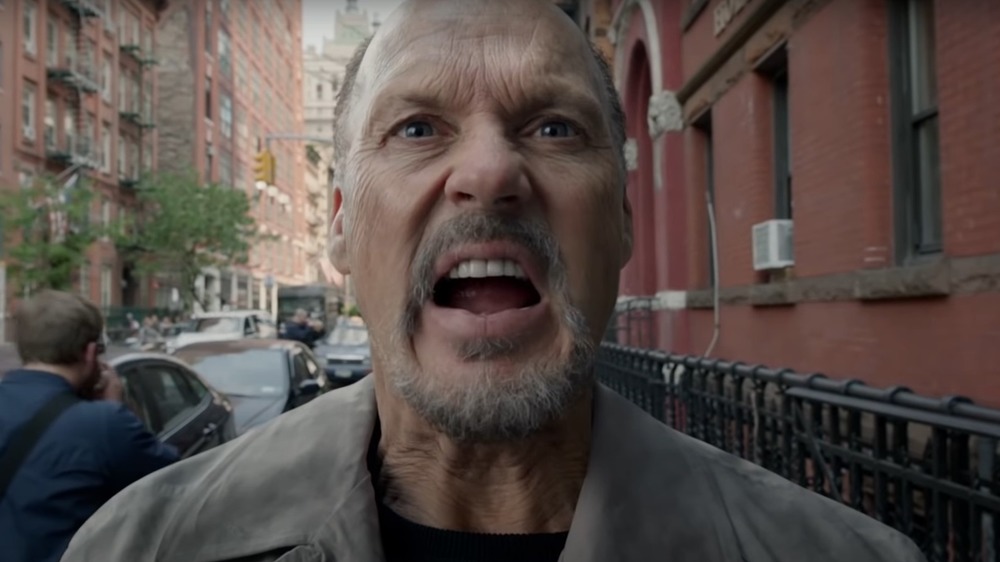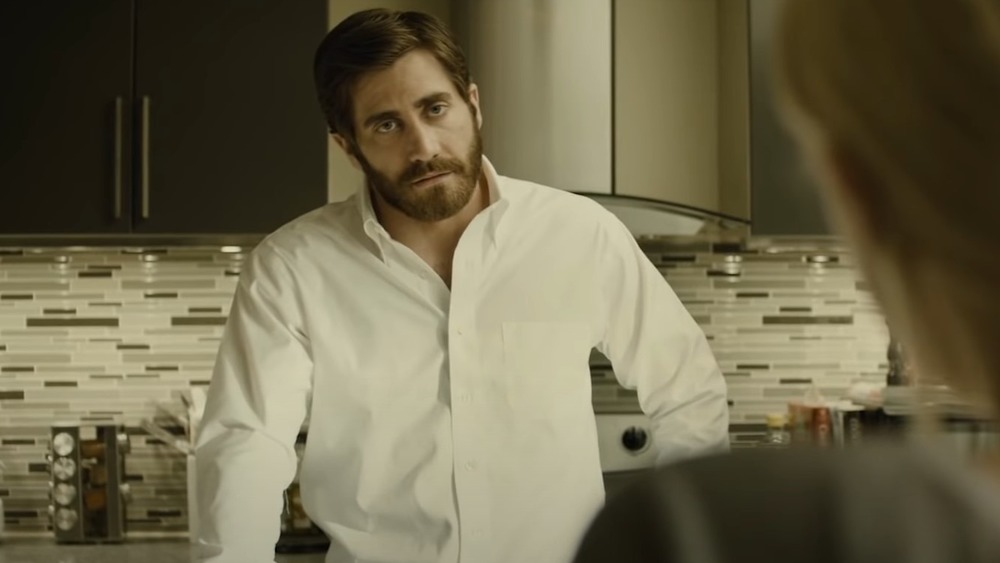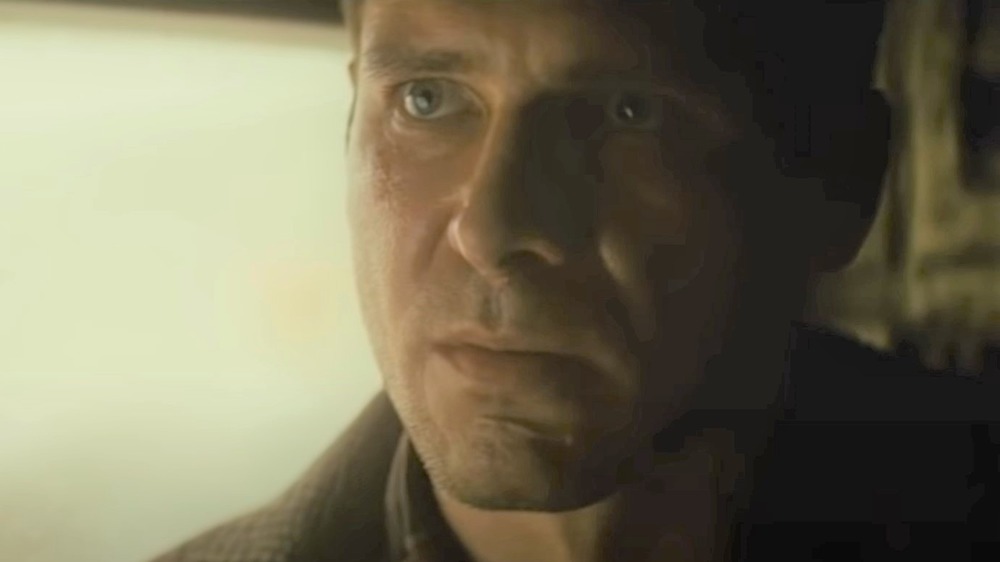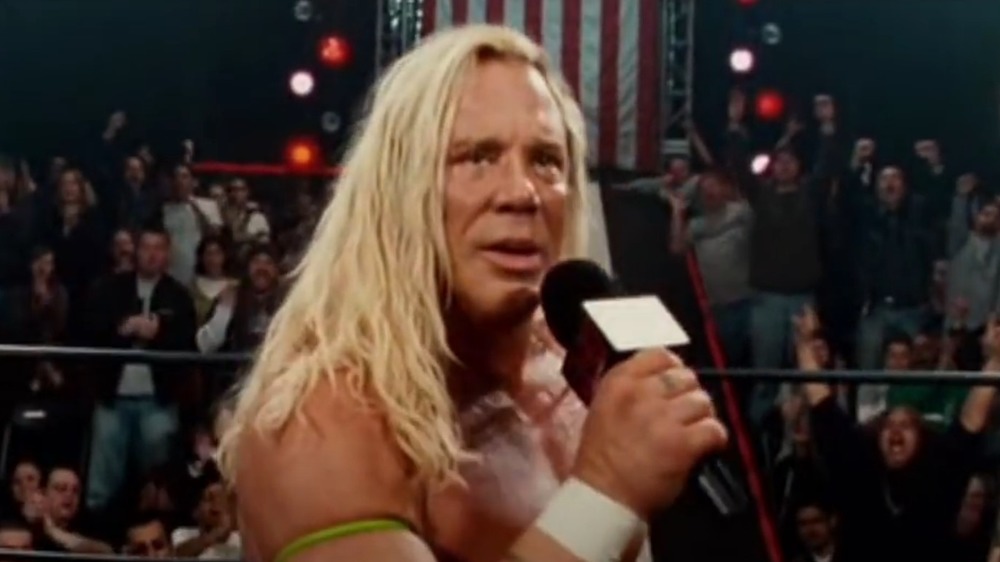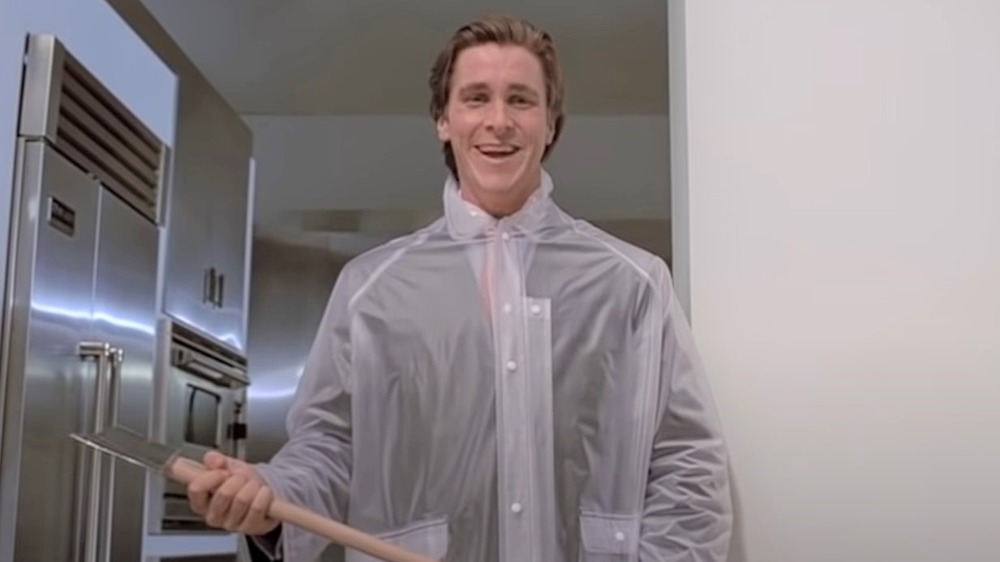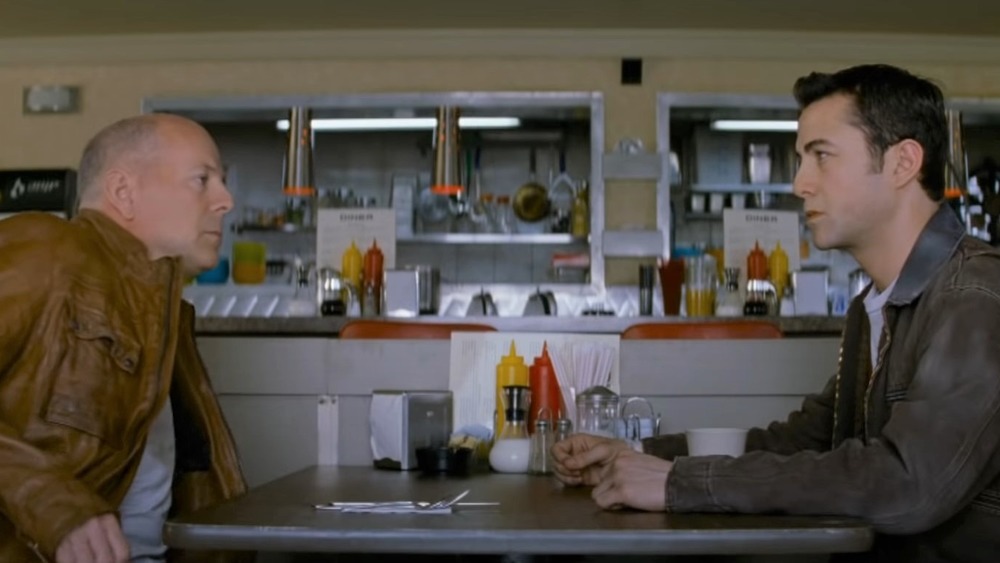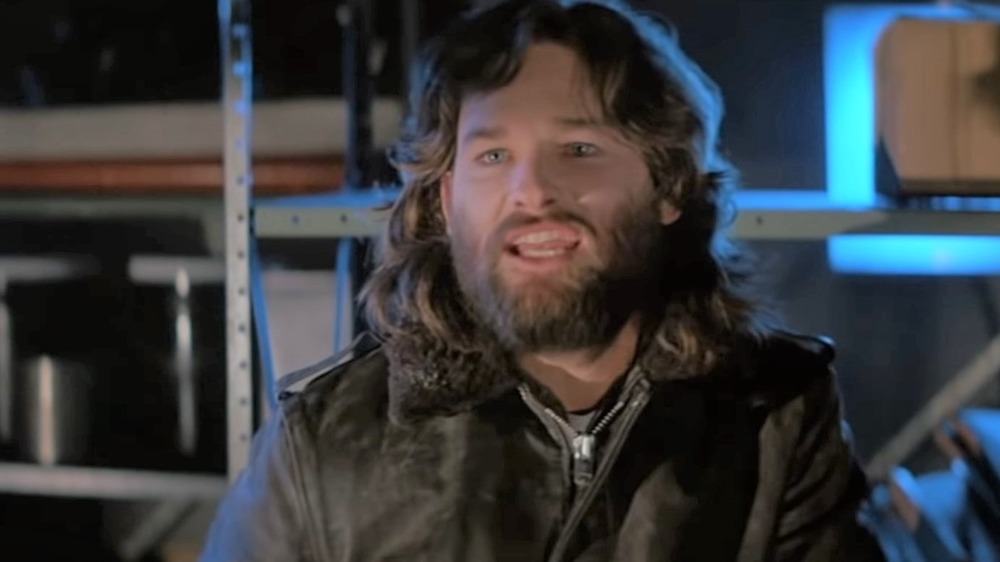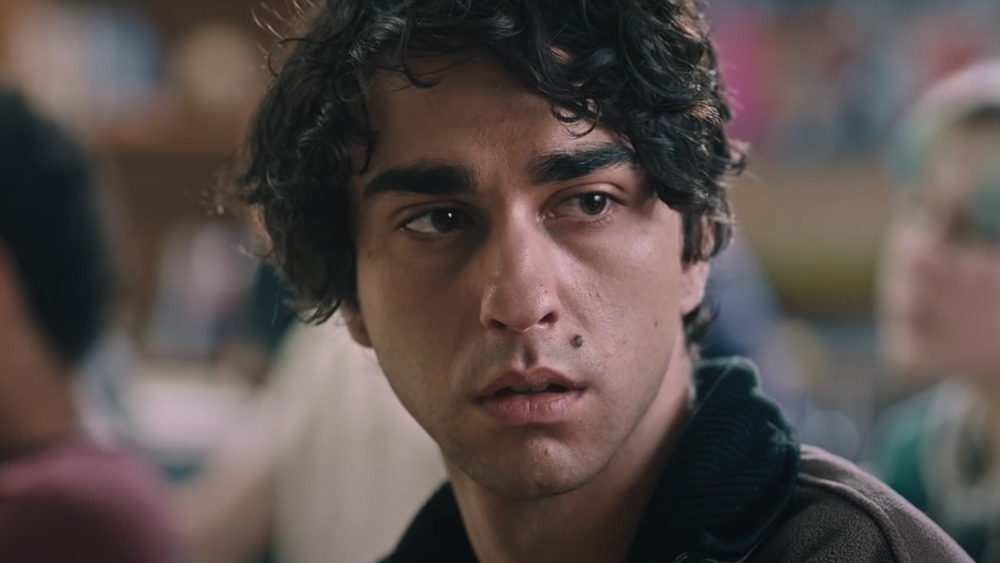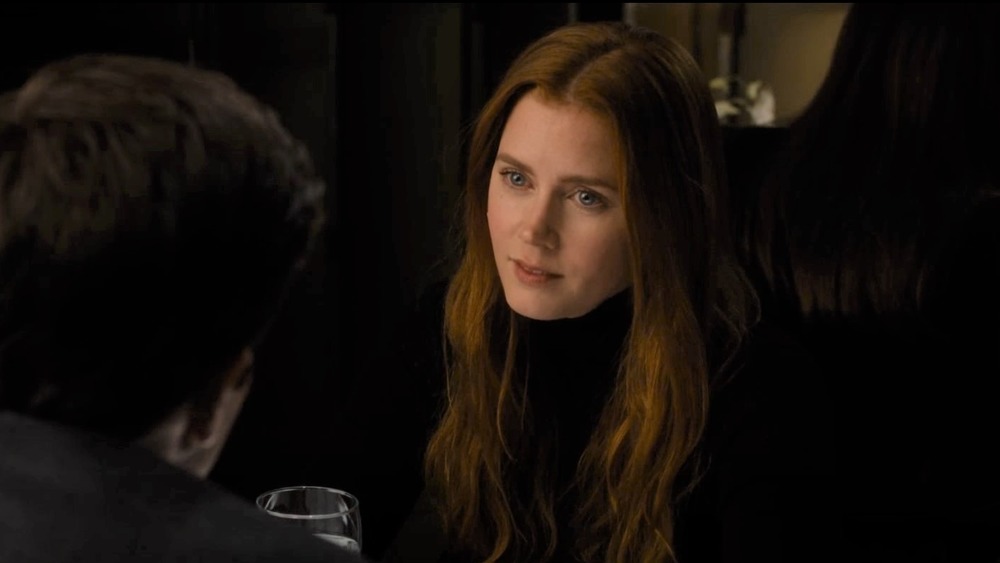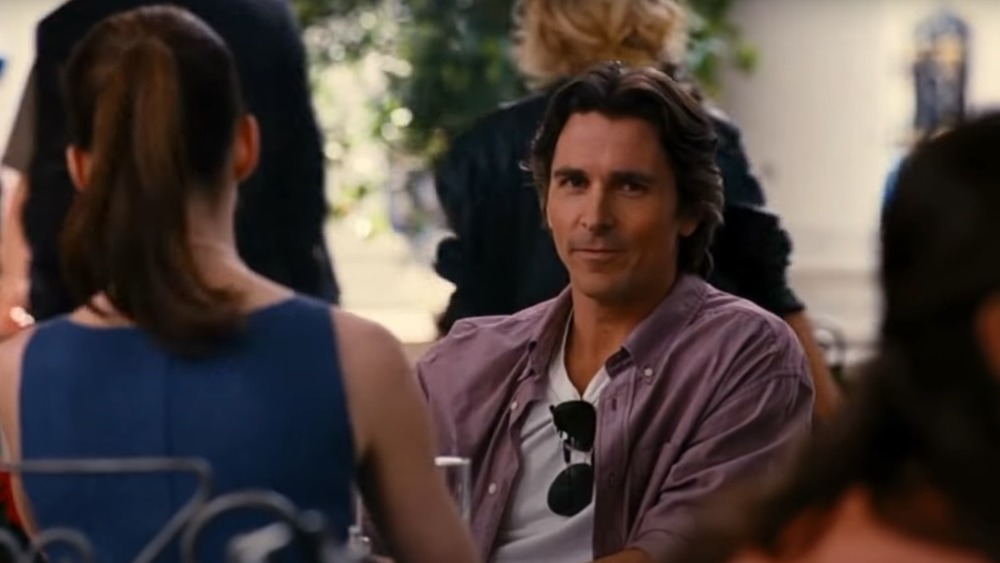The Most Confusing Movie Endings Of All Time Explained
Movie endings are powerful things. If cinemagoers leave the theater with smiles on their faces, it can make up for or even erase the preceding 90 minutes, no matter how terrible they were. In fact, there are dozens of lists dedicated to showcasing seemingly awful movies that were saved in their final moments by truly brilliant denouements. And yet, some of the most beloved films of all time achieved cult status chiefly because their endings are so heavily debated.
Some of these films will never be fully worked out, of course, but regardless their standing in pop culture allows us to endlessly pick them apart both with the assistance of the people behind these particular movies and our own amateur detective skills. If all else fails, maybe we can just assume the various characters were dead the whole time? These are the most confusing movie endings of all time explained (to the best of our collective ability).
You weren't the only one confused by the ending of Tenet
The master of confusing movie endings, Christopher Nolan truly outdid himself with Tenet, the mind-bending sci-fi blockbuster he insisted on releasing in theaters worldwide amid a deadly pandemic. The plot follows John David Washington's unnamed protagonist as he travels through time to stop Kenneth Branagh's evil Russian scientist Sator from starting something that, we are ominously told, will be worse than World War III.
As Esquire noted in a lengthy piece deciphering not just the puzzling denouement but the film as a whole, the science doesn't really add up, so it's better to just go along with it and feel it, which, funnily enough, is what the Protagonist is advised to do early on. In the final scene, we learn the Protagonist recruited Neil (Robert Pattinson) and gave him the requisite information to save the day, but, "he also, it would appear recruited himself, setting up the mission which he would recruit his past self into without knowing that the version of him the future is the one pulling all of the strings." Right, glad that's been cleared up.
The Lobster ends on an ambiguous note
Yorgos Lanthimos' The Lobster is one of the strangest romantic comedies ever created. As Screen Rant noted, the setup sees singletons required by law to either find their soulmates within an allotted timeframe or be turned into an animal of their choosing, hence the title, which refers to star Colin Farrell's choice. His protagonist, David, covertly falls in love with a woman, played by Rachel Weisz, who belongs to a rebel group called the Loners. When their relationship is discovered, she's blinded in retaliation by the Loners. The film ends with the shy couple sitting together in a diner, with David ultimately deciding to blind himself too, presumably so they have something in common.
The Lobster cuts to black before we find out whether he does it, however. In an interview with Entertainment Weekly, Farrell shared that he reckons David did blind himself, though he played it deliberately obtuse. However, Farrell also wonders whether David maybe legged it while his companion wasn't paying attention, or even lied and pretended he'd done it (not sure how that would work when it comes to being blind, though). As far as the Irish actor is concerned, it all depends on your outlook; romantics will assume David went through with it, cynics will figure the opposite, and both positions are valid.
Shutter Island ends with one last twist
When it came to adapting Dennis Lehane's beloved novel Shutter Island for the big screen, there was only one man for the job: Martin Scorsese. After assembling an A-list cast, with Leonardo DiCaprio and Mark Ruffalo leading the charge, the legendary filmmaker elevated Lehane's story eloquently. As IndieWire noted, the ending reveals that the entire story was actually part of a therapeutic role-playing game meant to break DiCaprio's character, Andrew (who we got to know as Teddy), a patient at the titular facility himself, out of a years-long delusion created after he killed his wife who had murdered their children.
However, the final line — "Which would be worse: To live as a monster, or to die as a good man?" — strays from the ending of the book, which finds Andrew slipping back into his delusions rather than breaking free, suggesting he might commit to a lobotomy of his own free will because he can't face what he's become. Lehane reasoned to MTV News that it was just a "momentary flash" of sanity, and "he quickly sort of lets it go." However, according to Scorsese's psychiatric adviser, Professor James Gilligan, Andrew does choose his fate and voluntarily chooses a lobotomy because he's overwhelmed by guilt (via The Guardian).
What really happens at the end of Birdman?
Alejandro González Iñárritu's Birdman, or Birdman Or (The Unexpected Virtue Of Ignorance) to give the film its full title, follows Michael Keaton's washed-up actor Riggan, as he struggles to take part in a vanity project theater production while being haunted by the voice of the titular superhero, his biggest role as an actor. As Cinema Blend noted, the ending is ambiguous because the superpowers hinted at throughout, which appeared to be in Riggan's head, are seemingly made real when he jumps out the window and apparently flies, as per his daughter's awestruck reaction.
Throughout the movie, Iñárritu plays with the idea of whether Riggan's powers are real, with the opening scene finding him floating in mid-air. In the end, he's finally achieved the fame and notoriety he's always wanted while reconnecting with a daughter who's proud of him, which might have given him the strength to finally fly for real. Or in a darker reading, he simply leapt to his death. There are even theories, as per Screen Rant, that Riggan dies earlier on and the rest is a dream he has in his final moments. Thus, Birdman ends the same way it begins: by challenging our perception of reality.
The ending of Enemy isn't as clear as its director thinks
Director Denis Villeneuve confidently told HuffPost, "If you look at Enemy again, you can see that everything has an answer and a meaning." As Slate noted, however, critics and fans alike were left flummoxed by the Jake Gyllenhaal-starring shocker, which is based on novel The Double. The movie follows sad sack Adam, who discovers he has a movie star twin named Anthony (also played by Gyllenhaal). The two gradually mess up each other's lives until Anthony dies in a car crash, leading Adam to enter his home, where Anthony's wife, Helen, transforms into a giant spider.
Slate argued Enemy is "a parable about what it's like to live under a totalitarian state without knowing it," with the spiders covertly taking over everything. However, Vulture stated the spiders, which aren't a part of the source novel, actually represent "the Freudian Madonna-whore complex, in which men see women as either saintly mothers or worthless sex objects," represented here in the opposing female characters. Enemy is therefore a strong enough story to be read either way, despite Villeneuve claiming it's very clear cut.
What you need to know about the ending of Blade Runner
Blade Runner may just be the most debated movie ending of all time, exacerbated by the fact there are several different cuts of the film, each of which provides a different interpretation. As Thrillist explained, the classic sci-fi movie follows Harrison Ford's grumpy, and supposedly human, cop Deckard, who falls in love with a replicant named Rachel (Sean Young). Fans have argued for years about whether Deckard is a replicant too, particularly thanks to the so-called "unicorn scene" in Ridley Scott's 1992 Director's Cut, which makes it clear once and for all that Deckard's memories are synthetic and have been implanted in his brain to trick him.
Scott told Wired that was indeed the case, but if he's right, then it robs Blade Runner of its central tension because there's no issue if Deckard has fallen for a fellow replicant. Ford, meanwhile, has maintained for years that Deckard is a human being. The Telegraph highlighted a BBC interview the actor did, in which he argued that Scott simply "wanted to have it both ways," but confirmed his own interpretation of the character is that Deckard is human.
Does the ending of Inception really matter to the story?
Christopher Nolan seems to relish baffling us with his endings, and there was no bigger brain-scrambler than Inception. As Collider noted, the movie details how Cobb (Leonardo DiCaprio) wrestles with the specter of his ex-wife Mal (Marion Cotillard) while also "incepting" an idea into someone else's head via a dream heist to prevent a corporate takeover. The highly-contested denouement finds Cobb reunited with his father-in-law and children, while the spinning top he's been using to keep reality and the dream world separate spins — so, is Cobb dreaming or not?
Collider argued it doesn't matter either way, since Cobb isn't a trustworthy narrator in the first place, so his perception of reality is already up for debate. Vulture supported this theory, saying the most important thing is Cobb is back with his kids, whether they're real or simply projections of his troubled mind. Nolan himself appeared to confirm this reading too, noting during a commencement speech at Princeton University in 2015 (via Esquire), "Cobb — he was off with his kids, he was in his own subjective reality. He didn't really care anymore, and that makes a statement: perhaps, all levels of reality are valid."
The Wrestler ends before we see what happens to Randy
Certain movies end ambiguously on purpose. In the case of The Wrestler, the story does wrap up, but we just aren't party to it. As Collider reported, the film follows Mickey Rourke's down-on-his-luck wrestler Randy "The Ram" Robinson, who, despite his advancing age and the fact he's lost everyone close to him, simply can't stop working. Through a friendship with Marisa Tomei's stripper with a heart of gold and his reconnection with his daughter (played by Evan Rachel Wood), Randy gets a taste of what a life without wrestling might look like.
Unfortunately, he ultimately ignores doctors' warnings about his heart giving up if he gets back in the ring and does exactly that, reasoning real life is far more painful. The movie cuts out right as Randy is jumping off the top rope to nail his signature move, presumably for the last time. The Wrestler purposely ends where it does because the film is simply a snapshot of this man's life, meaning we can read the conclusion as depressing or uplifting depending on how we feel about Randy overall. He might kill himself in the process of doing what he loves one last time, or he might not, but Randy is happy.
Was American Psycho's Patrick Bateman really a killer?
American Psycho boasts one of the greatest examples of an unreliable narrator in the history of cinema. Christian Bale's portrayal of Wall Street jerk Patrick Bateman put him on the map, establishing Bale as an innately intense kind of performer. Although most of the movie finds Bateman running riot, sleeping with and murdering whoever he chooses, the ending seems to suggest more than a little of what we've just witnessed didn't actually happen — which would explain how he's gotten away with everything thus far, aside from simply being a rich white man, of course.
However, as Film School Rejects pointed out, the denouement isn't as vague as it initially appears. Right before Bateman confesses to his crimes, he tries to get money out of an ATM and is asked to "feed me the cat," which heavily suggests it's not really happening. Therefore, the events that follow are all in his head, which explains how Paul (played by Jared Leto) is still alive. The other killings did occur, though, because Bateman simply took out more accessible victims. It's a clever way of differentiating between real and imaginary without losing any of the pulpy horror that makes American Psycho so compelling.
Looper threw audiences for a loop
Before he took on Star Wars, Rian Johnson made time travel cool again with Looper, which featured Joseph Gordon-Levitt and Bruce Willis somehow playing the same character, Joe. If that sounds more confusing than Tenet, it isn't, but the ending still manages to provoke more questions than answers. As HuffPost shared, Looper wraps up somewhat satisfyingly, with young Joe dying as old Joe disappears because he no longer exists. But that doesn't explain how Sara (Emily Blunt) knows old Joe in the first place.
To HuffPost, Johnson confirmed the events of the movie did occur, but "on this timeline, the way that old Joe is experiencing it, nothing has happened until it happens." Therefore, "in terms of what this character is actually seeing and experiencing, he's living his life moment to moment-to-moment in the linear fashion and time is moving forward." That's why old Joe disappears, because he doesn't exist in the same way once young Joe dies. The logic is "if you kill yourself and you're not around, then the universe would realize that, catch up with it and he would no longer be there." As for Sara remembering him, Johnson chalks that up to "semantics."
Who was the Thing?
John Carpenter's beloved sci-fi horror The Thing features one of the most hotly contested endings ever. The spine-tingling premise surrounds who is and isn't human in an isolated arctic research facility, where the titular alien creature, which can perfectly emulate any living organism, is running riot. The movie culminates with protagonist MacReady (Kurt Russell) and colleague Childs (Keith David) sitting in the snow as the station burns around them, with the audience none the wiser about who is the Thing. In an interview with Blumhouse (via Mental Floss), cinematographer Dean Cundey revealed "a little gleam in the eye of the actor" was utilized to give a subtle clue about who's human. However, this was abandoned by the end of the film to leave it undetermined.
As Screen Rant reported, there are several fan theories pointing to alleged clues about who's been assimilated, including that Childs disappeared at one point and was therefore vulnerable and even suggestions that he mistakenly drinks gasoline rather than whiskey. Most people assume Childs is the Thing by the end, but given as both men are likely about to perish shortly after the credits roll anyway, it hardly seems to matter.
Hereditary had a dark and twisted ending
Family shocker Hereditary was loaded with memorable moments, from Toni Collette crawling on the ceiling to the infamous beheading moment. The ending to Ari Aster's attention-grabbing film debut is soul-destroying and bizarre in equal measure. As Cinema Blend acknowledged, it's difficult to ascertain where it begins because the escalation of horrors throughout is so exacting and slow. Essentially, Peter (Alex Wolff) stumbles out of the family home to discover a cult praising the demon Paimon in their treehouse, where the headless bodies of his mother, grandmother, and sister are knelt in prayer. A crown is placed on his head as Peter is declared the new leader, except he's referred to as "Charlie," who died earlier in the movie.
The cult's plan is spelled out earlier on, when Collette's character stumbles upon her mother's old journals. By the end, Peter's body is under the control of both Charlie and Paimon. His sister was groomed by their grandmother from a young age, but Peter was kept away from her, leading the cult to set Charlie up to host the demon until the time was right. Likewise, the three heads required by Paimon are those of the mother, grandmother, and granddaughter.
What the ending of Nocturnal Animals means for its characters
Designer-turned-filmmaker Tom Ford's darkly stylish sophomore feature, Nocturnal Animals, deployed an A-list cast headed up by Amy Adams as Susan and Jake Gyllenhaal as an author and her ex-husband, Tony. It culminates with Susan, confused that her ex has dedicated his new novel to her, sitting alone in a fancy restaurant, waiting for Tony, who's never going to arrive. Vulture explained that Susan leaving Tony inspires him to write a novel filled with "the type of vicious, aggressive action she seemed to be encouraging him toward."
While she's reading it, the world around her begins to mirror the darkness on the page. Susan, against her better judgement, becomes engrossed in her ex's work. By leaving her waiting for him, Tony forces her to confront how fake her life really is and how fickle her supposed love for her new husband is, considering Susan is apparently willing to run back to Tony at the drop of a hat. "For Ford, Tony seems to represent integrity," Vulture noted, while Susan is superficiality personified. The director might even be taking a stab at the fashion world he's been entrenched in for much of his life in the process.
The Dark Knight Rises is a fitting end for the trilogy
The modern redux of Batman erased all memories of the kitschy '90s variety, thanks to director Christopher Nolan's punishingly dark vision for the caped crusader. His trilogy closer, The Dark Knight Rises, finishes with Gotham in decent shape, as Bruce Wayne/Batman (Christian Bale) has wrestled control back from Bane (Tom Hardy) and Talia al Ghul (Marion Cotillard) and headed off into the sunset with Anne Hathaway's Selina. Poor Alfred (Michael Caine), who was convinced Bruce was killed while protecting the city, finds he's alive and well after spotting him across a café, while John Blake (Joseph Gordon-Levitt) quits the police force and discovers the Batcave.
As per Cinema Blend, there's a suggestion Alfred is hallucinating seeing Bruce — but which is more likely: that the caped crusader faked his death or that Alfred is unable to cope with losing Bruce? Regardless, Batman is done fighting crime and is at peace one way or another. Blake, meanwhile, is about to pick up where Batman left off, particularly after showing raw talent and impressing Commissioner Gordon earlier in the film. He might even become Robin or Nightwing. Gotham will always need a Batman-style crime-fighter, and, as The Dark Knight Rises ends, it seems Blake is just the man for the job.
